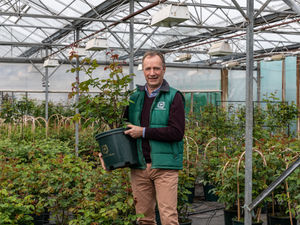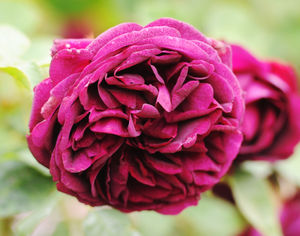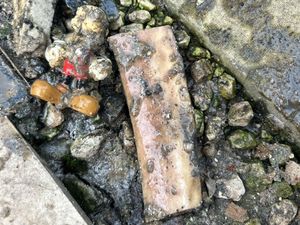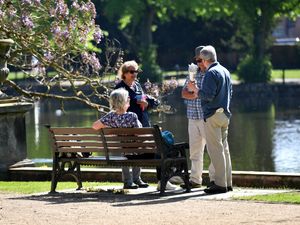David Austin Roses takes difficult step to retire popular flower varieties due to climate change
The boss of a famous Shropshire flower company has spoken of the impact climate change is having on its roses having taken the decision to retire popular varieties.

David Austin Roses, based in Albrighton, is famous globally for its blooms and has been on a mission for the last 60 years to offer its customers "the most beautiful and disease-free roses".
But, the ongoing challenges of global warming and an increase in pests means that the business has been forced to retire popular flower varieties, including the Munstead Wood and A Shropshire Lad.
Paul Constantine of David Austin Roses said: "As the leading experts in rose breeding and care for over 60 years, we are well-placed to witness the environmental changes that impact the health of the nation's favourite flower.
"We cannot stand still and observe as we see diseases and pests evolve as conditions and climates change, threatening the health and success of some of our most popular varieties.
"We are passionate about being custodians of the rose and are committed to doing everything we can to guarantee our customers plants that thrive, thereby safeguarding the future of the rose.
"This means re-trialling all our releases and, in some instances, retiring very popular varieties.
"Whilst these plants may continue to do well in some circumstances, in the long term the changing conditions mean that we recommend alternative varieties that are better suited to the changing environment.
"This is not an easy decision and may well result in lower revenue, but we must take the brave decision to retire them."

The Munstead Wood is a dark, velvety rose which was introduced in 2007, while A Shropshire Lad is a light peachy rose which was grown at David Austin for more than 20 years.
David Austin Roses says the varieties will "always remain part of our history" but that it made sense to pursue more climate-adaptable flowers.
Mr Constantine added: "Our simple aim is to get the best roses possible into our customers' hands, thereby ensuring them the best chance of success and happiness.
"Our breeding program is continually striving to bring in better varieties in terms of health, performance, beauty, and fragrance.
"Not an easy challenge but one we remain as committed to today as when David C.H. Austin set off on his quest for the most beautiful and disease-free rose 60 years ago."




